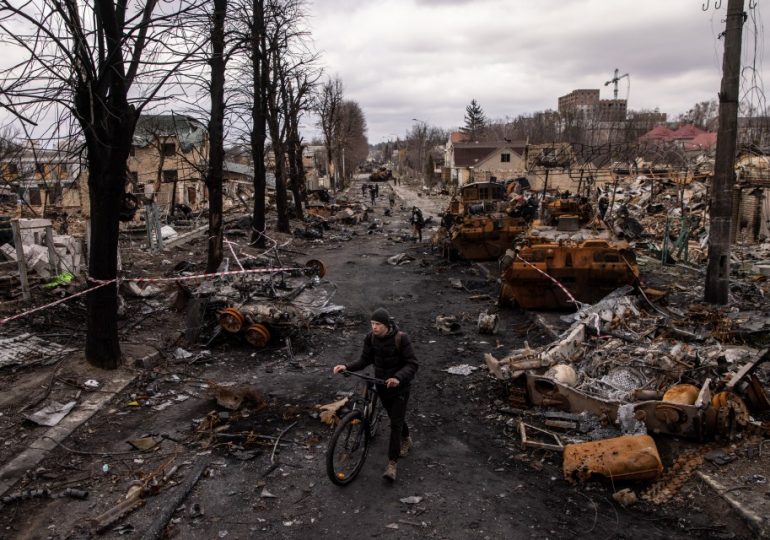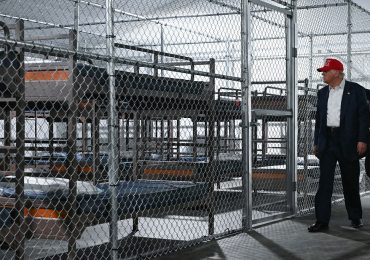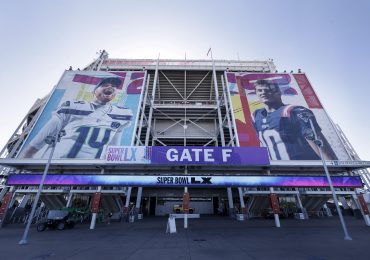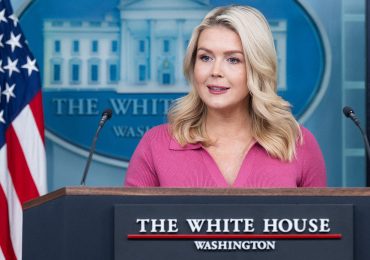THE net is closing in on the “Butchers of Bucha” – and Ukraine is preparing to take the investigation all the way to the top of the Kremlin, The Sun can reveal.
Two years ago today, Russian forces fled Bucha, leaving 458 bodies strewn through its streets, hidden in basements or in hastily dug mass graves.
GettyThe devastation inside Bucha after the brutal and bloody one-month occupation by Putin’s thug army[/caption]
AFPUkraine has finished the first step of its investigation into war crimes in Bucha – and now needs to prove it was a Kremlin-ordered policy[/caption]
The 12 ‘Butchers of Bucha’ have been identified and their crimes recorded, now Ukraine is investigating the chain of command
ReutersThere was a deliberate, systematic policy of killings of civilians, human rights lawyer Wayne Jorsah KC said[/caption]
AFPBodies of civilians were left lying in the streets of the suburban town[/caption]
In what’s widely considered the worst slaughter of the war so far, at least 82 residents, including nine children, were murdered in cold blood, their bodies left to rot in piles.
Hundreds more were tortured, sexually violated, injured or disappeared in the barbaric one-month occupation at the hands of Putin’s thugs in the once-quiet suburb of Kyiv.
The sickening war crimes, carried out mostly by Putin’s 64th Brigade in the initial weeks of the invasion between March 5 to March 31, 2022, shocked the world.
International law firm Global Rights Compliance is supporting Ukraine’s Office of the Prosecutor General (OPG) to carry out the ongoing investigations into
British barrister Wayne Jordash KC is helping to spearhead these efforts – and revealed to The Sun that the first stage of the complex investigations is completed.
The “Butchers of Bucha” have been identified – named and shamed by Ukraine in 2022 – but their crimes have now been recorded in extreme, pain-staking detail.
The killings were deliberate and systematic, part of a policy. Now, the OPG must follow that chain of command all the way to the top of the Kremlin.
Everyday we move closer to justice.
Wayne Jordash KC
Marking two years since the atrocity, Jordash said: “There can be no doubt that Russian forces were working to a criminal plan.
The plan for Bucha is “now as clear as day” – to eliminate Ukrainian resistance in town and clear a path for Russian forces to enter the capital.
“And they were willing to stop at nothing – terrorism, torture and indiscriminate murder of civilians included – to achieve this goal,” Jordash added.
“Two years on, Bucha is now free and able to look back at those dark days.”
The war crime lawyer said their investigation was “continuing at pace” and they are getting ever closer to proving the responsibility for the massacre lies in the Kremlin.
“Every day we know more and every day we move closer to justice for victims and their families.”
The more attention paid to “war crimes, crimes against humanity and genocide” committed on Ukrainian soil, Jordash said, the more possibility that the commanders and political leaders responsible will be identified and one day face the full force of justice.
THE CRIMES
Given safe passage by Putin’s lapdog Alexander Lukashenko, Russian forces stormed the suburbs surrounding Kyiv from Belarus in the early days of the Ukraine war.
Trigger-happy Russian soldiers stormed into the towns of Bucha, Irpin and Hostomel – names now etched in the minds of every Ukraine’s collective psyche.
Soon after they occupied Bucha, Russian forces went door to door, searching residential buildings – claiming they were “hunting Nazis”.
Russian soldiers snatched, interrogated and executed unarmed men of fighting age. They murdered families trying to flee, frightened elderly residents in their homes, and anyone who accidentally crossed their paths.
Who are the ‘Butchers of Bucha’?
Colonel Omurbekov Azatbek Asanbekovich, 39, from Chebarkul, Russia
Senior Sergeant Bizyaev Andrey Sergeyevich, 24, from Khabarovsk, Russia
Sergeant Lavrentyev Vyacheslav Anatolyevich, 30, from Zabaykalsky Krai, Russia
Sergeant Naryshkin Grigoriy Viktorovich, 31, from Bomnak, Russia
Sergeant Akimov Nikita Alekseyevich, 26, from Khabarovsk, Russia
Corporal Sergiyenko Dmitriy Sergienko, 28, from Voronezh, Russia
Corporal Kashin Mikhail Alexeyevich, 25, from Votkinsk, Russia
Corporal Maltsev Semyon Konstantinovich, 27, from Khabarovsk, Russia
Private Radnayev Albert Bairovich, 25, from Ulan-Ude, Russia
Private Peskaryov Sergey Olegovich, 25, from Leninskoe, Russia
Private Knyazev Vasiliy Nikolayevich, 25, from Dubniki, Russia
A father was shot dead in front of his 14-year-old son as they bicycled to an aid station.
Among the atrocities uncovered by Ukrainian forces were “torture chambers” set up in basements where the civilians were killed en masse.
Nine women and girls in Bucha became pregnant after being raped by Russian soldiers in the town.
The UN said the victims of sexual violence ranged in age from four to 82.
Following their hasty retreat from the Kyiv region, leaving a trial of death in their wake, Vladimir Putin quickly awarded medals to those involved in the butchery.
The 64th Motorised Rifles Brigade – who Jordash said “without a shadow of a doubt were involved in the crimes in Bucha” – were praised for the “heroism and valour”.
And in doing so, Putin approved the rape, the torture and the summary executions his troops inflicted – but now Ukraine must prove it.
Chris EadesUnarmed civilian men were led to their deaths by Russian troops on the first day of the occupation[/caption]
Chris EadesBodies of the civilian men executed by Russian troops were found in Bucha[/caption]
GettyUkrainian President Volodymyr Zelensky visited battered Bucha in April 2022 to show the world what happened[/caption]
APBodies are removed from Russian-built mass graves to be identified[/caption]
Mass graves outside Bucha built to bury the 458 killed by Russian troops
Maxar TechnologiesSatellite images show bodies of civilians lying on the ‘road of death’ in Bucha[/caption]
APGen. Aleksandr Chaiko (back left) – who was in charge of the atrocities in Bucha and other suburbs of Kyiv – sits next to Russia’s Minister of Defence Gen. Sergei Shoigu and Putin as they face Syrian dictator Bashar al-Assad in 2020[/caption]
THE INVESTIGATION
The first stage of investigating war crimes is mapping them at ground level, Jordash said. Working out what happened and what units were involved.
Then, once you establish a pattern “you can understand whether these crimes are the result of troops on frolics of their own or because they’re part of a policy”.
In Bucha, the policy was clear. Russian forces led what [the UN calls] a “cleansing operation.
“And once you start to see the policy, you begin to make the connections to the commanders and go up the chain of command.
This first stage is now complete, Jordash disclosed.
Next, the investigation must move beyond the immediate perpetrators – the “Butchers of Bucha” and begin the linkage investigation – who designed or drove the policy.
In Kyiv’s suburbs, like Bucha “you have a very visible chain of command,” Jordash explained.
It all links back to General Aleksandr Chaiko – who the barrister explained was in charge of all the Russian units encircling Ukraine’s capital.
He was “the face” of those atrocities – and “responsible for the policy of brutalising Ukrainian civilians”.
Now Ukraine must prove that. “That’s the most difficult part of war crimes investigations.”
Jordash expects that the OPG is building robust cases against Chaiko and his subordinates.
And when that is finished they can work towards proving whether the massacre was ordered by the Kremlin and eventually Putin himself.
APA woman cries after the deaths of family members in Bucha[/caption]
APA Ukrainian soldier waves a flag following the liberation of Bucha in early April 2022[/caption]
AFPA woman cries at the grave of her loved one killed in Bucha[/caption]
Jack Hill/The Times, The Sunday Times.Children play on a destroyed Russian tank near Bucha[/caption]
Wayne Jordash KC, the Brit barrister helping Ukraine to investigate Russian war crimes
Leave a comment






